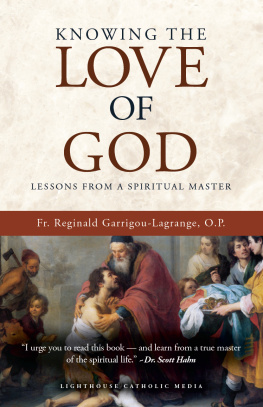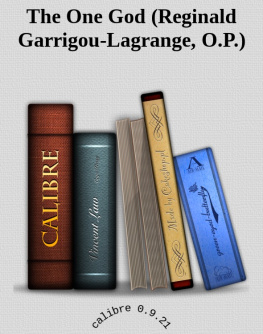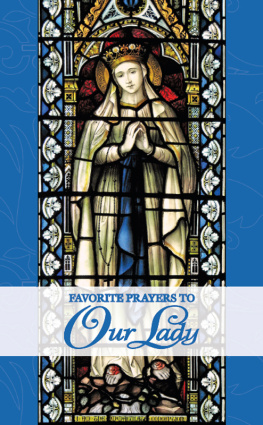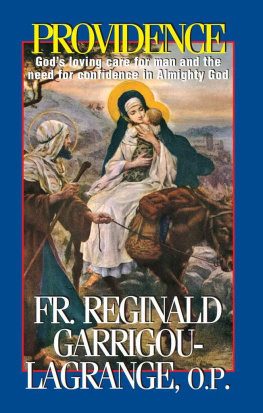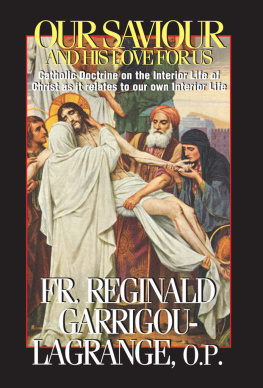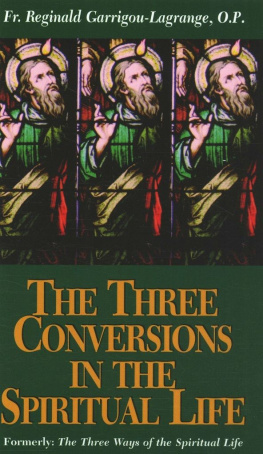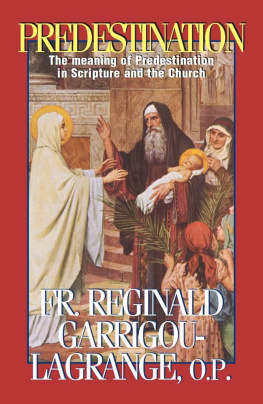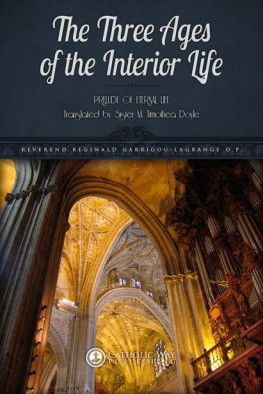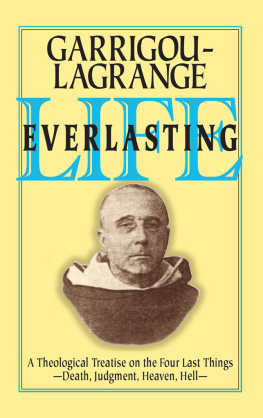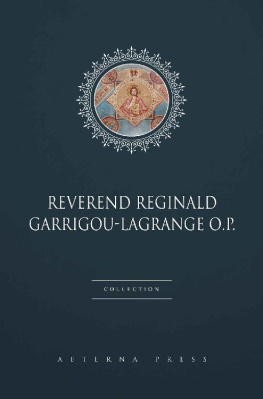R ginald Garrigou-Lagrange O.P .
Realit y
A Synthesis of Thomistic Though t
Translated by Patrick Cummins O . S . B .
Ex Fontibus Co .
Date of this revision: 19 June 2012 .
Copyright 2012 Ex Fontibus Co.
All rights reserved.
No part of this publication may be reproduced, stored in a re trieval sy s tem, or transmitted, in any form or by any means, electronic, mechanical, photocopying, recording or othe r wise, without prior permission of Ex Fontibus co.
Ex Fontibu s

Compan y
exfont@hotmail.co m
http://www.facebook.com/exfon t
http://www.lulu.com/ex_fontibu s
Contents
Preface
In this work we are incorporating the article on Thomism which we wrote for the Dictionnaire de theologie catholique . To that article we add: first, occasional clarifications; secondly, at the end, a hundred pages on the objective bases of the Thomistic synthesis, chiefly phi l osophic pages, which were not called for in a dictionary of theo l ogy.
Contradictory views, intellectual and spiritual, of St. Thomas have been handed down to us. The Averroists reproached him as but half-Aristotelian; the Augustinians saw in him an innovator too much a t tached to the spirit, principles, and method of Aristotle. This second judgment reappeared, sharply accented, in Luther, and again, some years ago, in the Modernists, who maintained that St. Thomas, a Christian Aristotelian, was rather Arist o telian than Christian.
In other words, some scholars saw in the work of St. Thomas a natural i zation of revealed truth, a depreciation of Christian faith, faith losing its sublimity, by a kind of rationalism, by exaggeration of the power and rights of reason. Now this rationalization of faith is indeed found in Leibnitz . It is certainly not to be found in St. Tho m as.
But these contrary judgments, however inadmissible, serve by contrast to set in relief the true physiognomy of the master, whom the Church has canonized and entitled Doctor Communis .
His whole life, all his intelligence, all his forces, were bent to the se r vice of the Christian faith, both in his doctrinal battles and in the serenity of co n templation. Justification of this statement appears in the way he conceived his vocation as teacher. You find therein an a s cending gradation which arouses admiration.
. Whereas on the one hand he fully recognizes all that is exce l lent, from the philosophical standpoint, in the teaching and method of Aristotle, he shows, on the other hand, against the Averroists, that reason can prove nothing against the faith. This latter task he acco m plished by demonstra t ing against them from philosophy itself, that God s creative act is free, that cre a tion need not be ab aeterno , that man s will is free, that the human soul is characterized by pe r sonal immortality.
. In opposition to the Augustinians, who, repeating their master by rote, were in large measure unfaithful to that master, he carefully disti n guishes reason from faith, but, far from separating these two, he rather unites them .
. He shows that philosophy deserves to be studied, both for its own sake, and also to establish, by arguments drawn simply from re a son, that the praeambula fidei are attainable by the natural force of h u man intell i gence.
. As regards the purposes of theology, which he calls sacred doctrine, he shows, first, that it is not to be studied merely for pe r sonal piety or for works of edification or to comment on Holy Scri p ture or to assemble patri s tic compilations or, finally, to explain the Sentences of Peter Lombard. Theology must rather, he goes on to show, be studied as a branch of knowledge, which establishes scie n tifically a system of doctrine with objectivity and universal validity, a synthesis that harmonizes supe r natural truths with the truths of the natural order. Theology is thus conceived as a science, in the Arist o telian sense of the word, a science of the truths of faith .
. This position granted, it follows that reason must subserve faith in its work of analyzing the concepts and deepening the unde r standing of r e vealed truths, of showing that many of these truths are subordinated to the articles of faith which are primary, and of dedu c ing the consequences contained vi r tually in the truths made known by revelation.
. Nor does faith by thus employing reason lose aught of its s u pernat u ral character. Just the contrary. For St. Thomas, faith is an infused virtue, essentially supernatural by its proper object and fo r mal motive, a virtue which, by an act that is simple and infallible, far above all apologetic re a soning, makes us adhere to God revealing and revealed . Infused faith, therefore, is superior not only to the highest philosophy, but also to the most enlightened theology, since theology can never be more than an explanatory and deductive comme n tary on faith.
. Further, this conception of theology does not in any way lower Chri s tian faith from its elevation. For, as the saint teaches, the source of theology is contemplation, that is, infused faith, viv i fied, not only by charity, but also by the gifts of knowledge, understanding, and wisdom, gifts which make faith penetrating and pleasant of taste. Thus theology reaches a most fruitful understanding of revealed my s teries, by finding analogies in truths which we know naturally, and also by tracing the inte r twining of these mysteries with one another and with the last end of our life .
Such is the conception formed by St. Thomas on his vocation as Catholic doctor and particularly as theologian. And his sanctity, ad d ed to the power of his genius, enabled him to reply fully to his prov i dential cal l ing.
In his doctrinal controversies carried on exclusively in defense of the faith, he was always humble, patient, and magnanimous, cour a geous indeed, but always prudent. Trust in God led him to unite prayer to study. William de Tocco, his biographer, writes of him: Whenever he was to study, to u n dertake a solemn disputation, to teach, write, or dictate, he began by retiring to pray in secret, weeping as he prayed, to obtain unde r standing of the divine mysteries. And he returned with the light he had prayed for.
The same biographer gives two striking examples. While wri t ing his commentary on Isaias, the saint came to a passage which he did not unde r stand. For several days he prayed and fasted for light. Then he was supe r naturally enlightened. To his confrere, Reginald, he revealed the extrao r dinary manner in which this light came to him, namely, by the apostles Peter and Paul. This account was co n firmed by one of the witnesses in the saint s canonization process.
A second example is reported . In the friary at Naples, when the saint was writing of the passion and the resurrection of Christ, he was seen, while praying before a crucifix in the church, to be lifted up from the floor. Then it was that he heard the words: Th o mas, thou hast written well of Me.
Daily, after celebrating Mass, he assisted at a second, where o f ten he was the humble server. To solve difficulties, he would pray before the tabernacle. He never, we might say, went out of the cloi s ter, he slept little, passed much of the night in prayer. When, at compline during Lent, he listened to the antiphon: Midst in life we are in death, he could not restrain his tears. Prayer gave him light and inspiration when he wrote the Office of the Blessed Sacrament. Wi l liam de Tocco tells us also that the saint was often seen in e c stasy, and that, one day, while he was dictating a long article of the Trinity, he did not notice that the candle in his hand had gone so low that it was burning his fingers .
Toward the end of his life he was favored with an intellectual v i sion, so sublime and so simple that he was unable to continue dicta t ing the tre a tise on Penance which he had commenced. He told his faithful companion that he was dying as a simple religious, a grace he had prayed the Lord to grant him. His last words were given to a commentary on the Canticle of Canticles.
Next page

